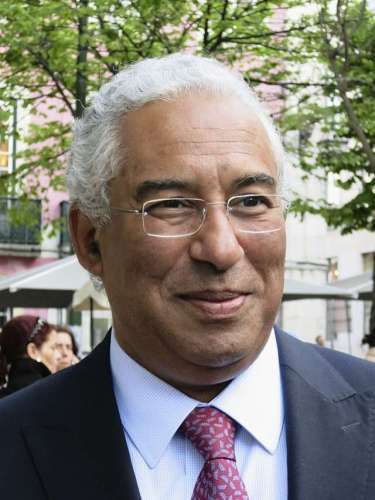 Socialist Antonio Costa, the top contender in Portugal’s prime ministerial race and known as Lisbon’s Gandhi, has a Goa connection.
Socialist Antonio Costa, the top contender in Portugal’s prime ministerial race and known as Lisbon’s Gandhi, has a Goa connection.
Antonio, who won the primaries of the country’s main opposition Socialist Party this week, is part Goan by origin.
He has been a regular feature at several events organised by Goan expats in Portugal, which ruled Goa as a colony for 451 years.
“Goans are making their presence felt in Portugal politically,” says Adv Jose Elmano Coelho Pereira, a prominent city advocate who is instrumental in organising the Semana da cultura Indo Portuguesa (Indo Portuguese cultural week) which annually alternates between Lisbon and Goa.
But Pereira believes while there was reason to be proud, he wasn’t willing to celebrate just yet.
“Now he’s just a candidate, elections are a year away. Let’s celebrate then,” he added, adding he was rooting for the Costa camp.
Antonio’s grandfather, Luis Afonso Maria da Costa, hailed from Goa. And though Costa Senior himself was born in Mozambique, then also a Portuguese colony, he spent most of his youth in Goa, before migrating with his family to Portugal after India liberated the tiny state from colonial rule in 1961.
Antonio’s father Orlando was a prominent writer who was in touch with nationalist movements across various colonies post World War II and later joined the Portuguese Communist Party, which was later outlawed.
Antonio Costa himself is steeped in contemporary Iberian lore as ‘Lisbon’s Gandhi’ — for his spartan lifestytle which has won him fans.
Costa has been elected mayor of Lisbon thrice and is now fancying his shot at the country’s top political prize.
The mayor of Lisbon is a prestigious office and the capital’s first citizen is often called in cabinet meetings by Portuguese prime ministers.
Testament to his Goan roots, Costa is to this day called by the nickname ‘Babush’ a Konkani word used to refer to a young boy.
And it is these roots which State Commissioner for NRI Affairs Wilfred Mesquita wants the Portuguese prime ministerial candidate to “recognize”.
“We will have reason to celebrate only if he is gracious enough to recognise his roots. If he identifies himself as Portuguese, then what reason do we have to celebrate,” asks Mesquita, who is also the state vice president of the Bharatiya Janata Party.
That should not be a problem considering that Antonio was a prominent guest at the Semana da Cultura Indo Portuguesa at Lisbon in 2012 which was attended by several Goan politicians including Mesquita.
At the event, Antonio is believed to have expressed interest in promoting trade between India and Lisbon, with Goa being the point of contact for the trade interactions.
This is something he may find relatively easy to push through if he is elected prime minister.
Just how realistic are his chances? Well, the precedent seems healthy.
An earlier Lisbon mayor, Jorge Sampaio, went on to be elected president of Portugal in 1996.
Following him, another mayor of Lisbon, Pedro Santana Lopes, was appointed prime minister, though he was not a member of the Portuguese parliament and served very briefly.